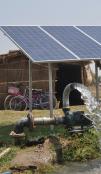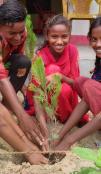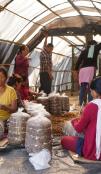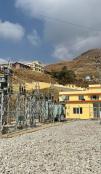Empowered Women Prosperous Nepal (Shashakta Mahila, Sambriddha Nepal)

|
The project aims to advance gender equality and empowerment of women and girls in Nepal, so as to realize the national vision of a prosperous and developed Nepal (Vision 2030). The ambition of the programme is expected to achieve with the following results: Men and boys, families and communities demonstrate more gender-equitable behaviour, support for positive social and gender norms that promote gender equality and women’s empowerment, and women and girls have increased agency and voice; women, men, girls, and boys, in all their diversity, fully enjoy and exercise their equal economic, labor, and social rights.; and institutions deliver gender equality outcomes in all spheres, in line with international and national normative frameworks. First of all the Social Norm Change and Gender-Based Violence (GBV) Prevention includes some dedicated actions including engage men and boys to model gender positive behaviour in line with men engagement strategy. It will be complemented by Support community/institution i.e., schools, women & girls' networks to challenge/transform harmful social norms. Empower women/ girls, parents, caregivers, community using gender transformative approaches to speak up against gender discrimination, address harmful social norms & model positive behaviours is another crucial facet of the programme. It has also aimed at promoting equitable gender norms including around unpaid household and care work within families. In addition, promoting social care infrastructure to address women’s unpaid care work., expanding existing GBV champions program to enable promising adolescents and youth to advocate gender equality and human rights, particularly sexual and reproductive health rights in their communities, and strengthening data systems and evidence generation on GBV - National GBV Prevalence Survey are some additional endeavours that the programme has aimed at achieving. Similarly, women’s Economic Empowerment is expected to achieve by promoting decent work through strengthening labor administration systems, and increasing women’s participation in labor force and improve working conditions. As a part of the programme, the promotion of social dialogue in all tiers of governance, aimed at promoting decent work, gender equality and human rights in line with the principles of leaving no one behind. It will be complemented by enhancing tripartite dialogue structures and capacity of market-based organizations (trade unions, chambers of commerce, cooperatives, producer groups), and strengthening gender sensitive social protection measures, including social assistance and contributory schemes. The programme also aims to promote income generation opportunities and supporting women-led businesses, promote sustainable value chains linked to green growth and formalization, and promoting access to gender and age sensitive essential services including through government supported One-Stop Crisis Management Centers (OCMCs), safe houses and shelter homes for GBV survivors. As a part of the women’s leadership and representation, the programme will support Ministry of Women, Children and Senior Citizens to monitor implementation of gender equality policy. Similarly, support will be provided to national human rights institutions including National Women’s Commission on implementation of international and national normative commitments. In addition, gender mainstreaming will be strengthened in selected sectors at all levels of government including gender-responsive budget (GRB) implementation at provincial and local level government in line with model GRB guideline developed by Ministry of Finance. Along with promoting women’s leadership and access to decision making (elected women representatives) to strengthen gender responsive governance the programme will carry out number of activities dedicated to promoting civic engagement especially of women and youth at all levels of government. Furthermore, the programme envisages to promote the ratification and implementation of ILO Conventions with support of Ministry of Labour, Employment and Social Security and also providing support to National Child Rights Council to institutionalize Child Protection Information System and support Nepal Police in data collection and analysis. Following formal launching of the project in February 2023, the programme has detailed out framing the programme including result matrix and implementation plans. Thirty one local governments from the three targeted provinces are also selected through a rigorous selection process. The first meeting of the Programme Steering Committee Chaired by the Secretary of the MoWCSC and co-chaired by the EU Ambassador and the UN Resident Coordinator was held on 10th August 2023. Setting up internal institutional arrangements including staff recruitment and selection of implementing agencies, carrying out baseline survey and detailing out Palika specific actions are ongoing. |




